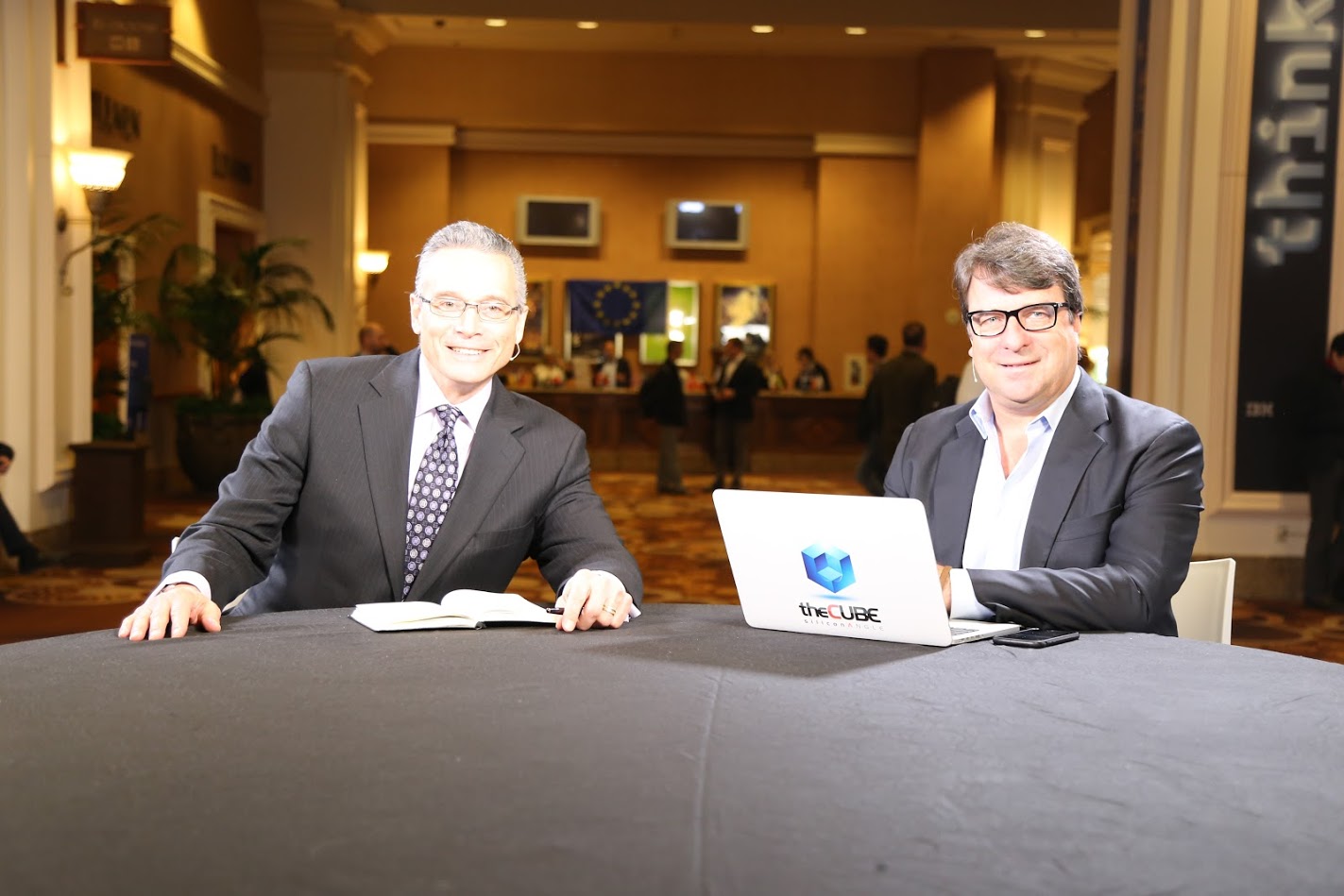 BIG DATA
BIG DATA
 BIG DATA
BIG DATA
 BIG DATA
BIG DATA
As the keynote presentations during day three of the IBM Think conference in Las Vegas came to a close, the message was hard to miss: IBM is all in on the blockchain, and it intends to use its considerable technology clout and finances to build a significant business around the extrasecure, distributed ledger platform.
“IBM has a tendency to identify a hot trend … and kind of elbow their way in,” said theCUBE co-host Dave Vellante (@dvellante, pictured, left), who recalled the company’s previous forays into Linux and Spark. “You’re seeing … IBM going back to the core, and they’re bringing blockchain back to the core as a way to disrupt existing business models and defend against disruptors.”
During the final day of the IBM Think event, Vellante and his co-host John Furrier (@furrier, right) discussed the risks associated with IBM’s strategy and blockchain’s potential for changing supply chain models. (* Disclosure below.)
IBM’s blockchain gambit is not without risk. As an enabling technology, successful implementation of a blockchain strategy will depend on the company’s ability to cultivate business value, especially from its existing customer base.
“The real risk in blockchain and cryptocurrency and decentralized applications is nailing the business model disruption,” Furrier said. “IBM needs to up its game on that part of it.”
Earlier this week, IBM announced a partnership with sea freight giant Maersk to jointly create a supply chain protocol based on the blockchain. The venture is designed to track shipments and flag fraud or theft in the handling of goods during transport. The solution will be based on Hyperledger Fabric, a project currently riding a surge of popularity.
“It’s the fastest-growing project in the history of the Linux Foundation,” Vellante noted.
IBM’s collaboration on a supply chain project appears to fit well with the company’s business mix and strategy. The challenge will be whether the opportunity can be translated into a direct contribution to the bottom line.
“Any supply chain activity can and will be disrupted by blockchain, cryptocurrency and token economics,” Furrier said. “IBM has a ton of supply chain business. This is a great opportunity for IBM if they can convert that business value into the blockchain.”
Here’s the complete video analysis, and there’s much more SiliconANGLE and theCUBE coverage of IBM Think. (* Disclosure: TheCUBE is a paid media partner for IBM Think. Neither IBM, the event sponsor, nor other sponsors have editorial control over content on theCUBE or SiliconANGLE.)
Support our mission to keep content open and free by engaging with theCUBE community. Join theCUBE’s Alumni Trust Network, where technology leaders connect, share intelligence and create opportunities.
Founded by tech visionaries John Furrier and Dave Vellante, SiliconANGLE Media has built a dynamic ecosystem of industry-leading digital media brands that reach 15+ million elite tech professionals. Our new proprietary theCUBE AI Video Cloud is breaking ground in audience interaction, leveraging theCUBEai.com neural network to help technology companies make data-driven decisions and stay at the forefront of industry conversations.